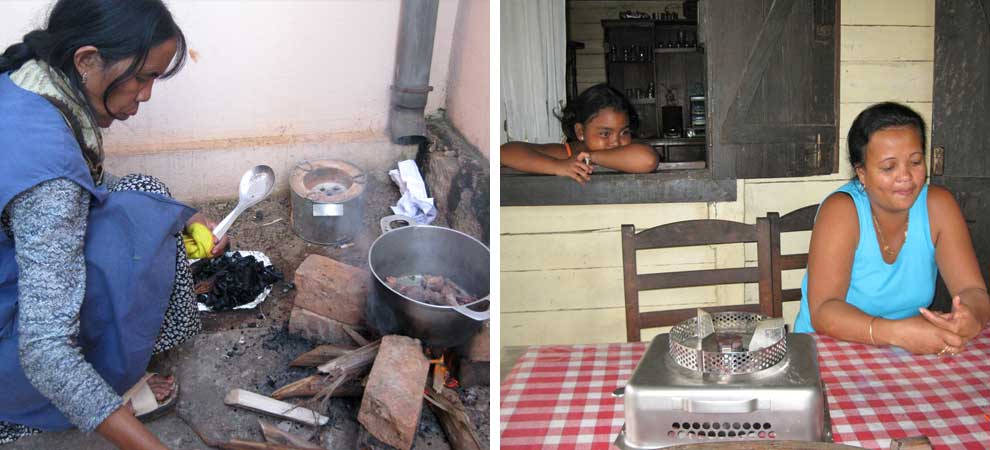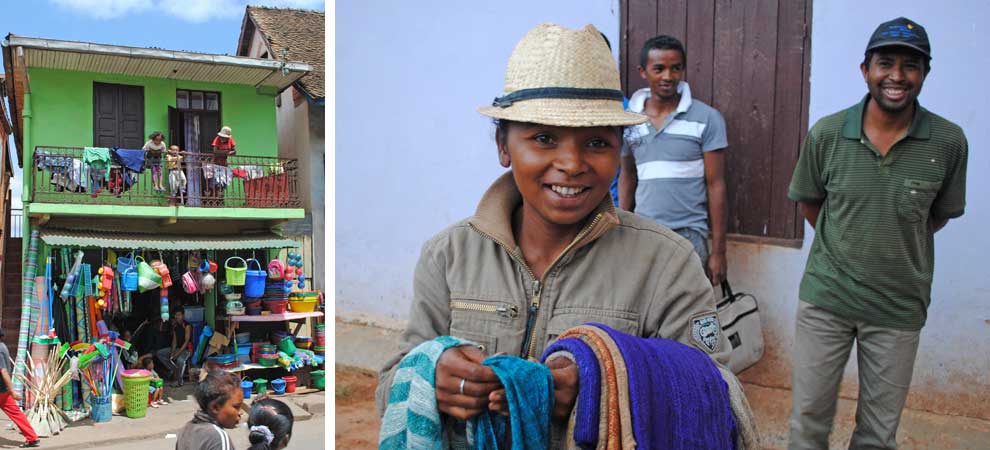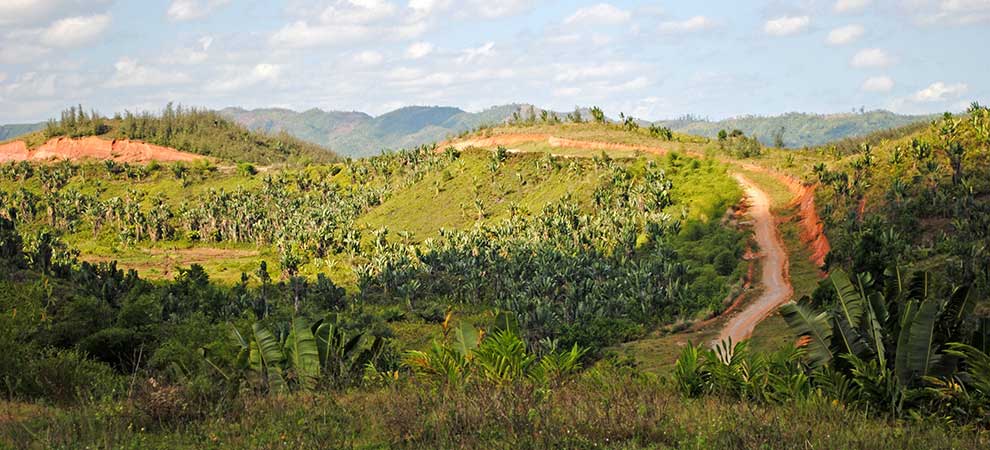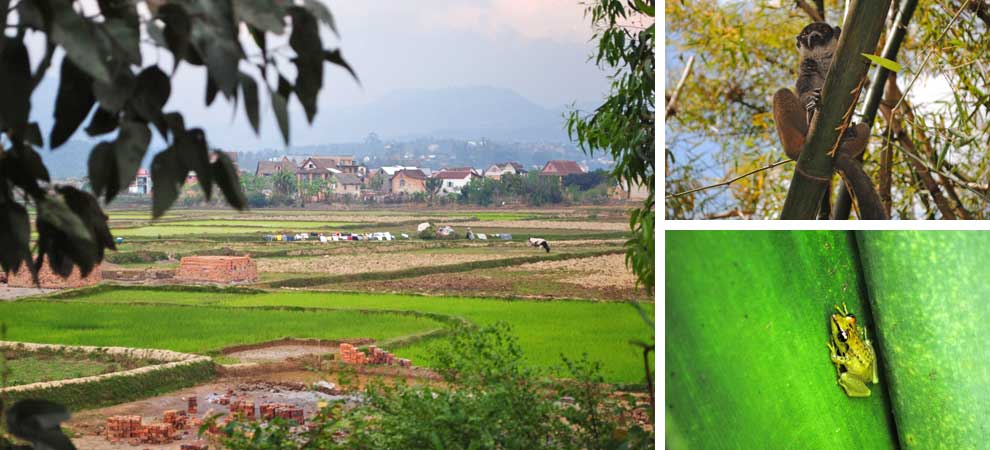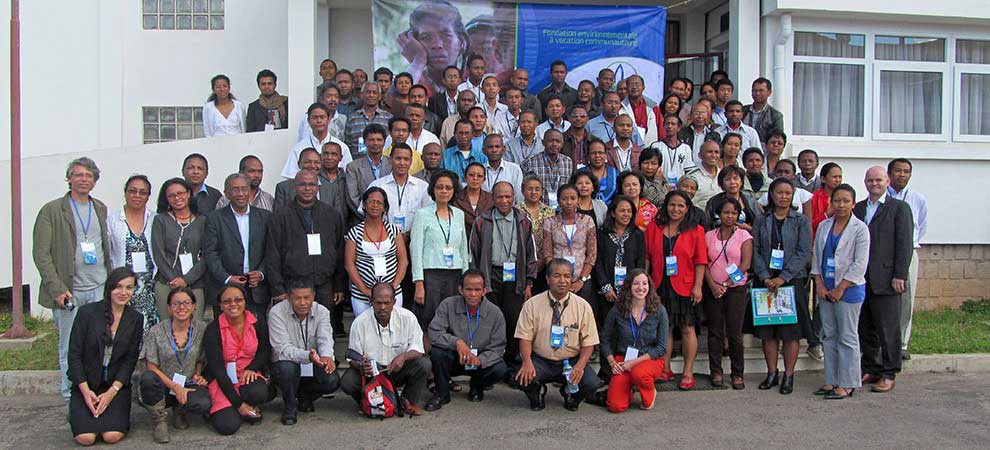Healthy Forests, Healthy People
Madagascar is one of the most biodiverse countries in the world, yet that soon may be changing. At current rates of deforestation, this beautiful island- home to so many species- will lose all its forests within 40 years.
Land clearance, slash & burn agriculture, wildfires, and over-harvesting of wood for charcoal and fuelwood are all to blame. While forest reserves are on the decline, the demand for fuelwood is rising dramatically. Madagascar’s population has tripled since 1950, and fuel alternatives are scarce.
Low and middle income households rely on firewood, while richer households use charcoal for cooking. Nearly 12,000 deaths per year in Madagascar are attributed to diseases caused by kitchen smoke. Out of these deaths, 10,000 are children under 5 years.
The Numbers Say it All
Project Gaia and the CleanCook stove were central to a groundbreaking study, “Ethanol as a Household Fuel in Madagascar”, funded by the World Bank. The household air pollution and personal exposure component found that the ethanol stove & fuel intervention reduced personal pollution CO and particulate matter exposure levels in participating children by 60% 40% respectively, and achieved a 64% reduction in risk of burns (compared to traditional firewood). On average, switching from a charcoal stove to an ethanol stove saved 2.5 hours per day in cooking time. When asked, women often cited time savings as the major motivator in transitioning to clean fuels.
Scaling Up
In 2016, Project Gaia returned to Madagascar to serve as a technical consultant on the Madagascar Ethanol Stove Program, a project developed by Green Development AS, a Norwegian carbon finance company.
The project seeks to scale up ethanol cooking in Madagascar through the delivery of 100,000 ethanol stoves over five years. The program will feature at least three stoves: the Safi, the CleanCook and the locally produced Meca Green. It is simultaneously working to develop local ethanol supply chains by encouraging the establishment of micro distilleries. Project Gaia is advising on distillery procurement and creating an ethanol control system.
The project creates a host of opportunities capacity building and economic gains. Technology transfer will be promoted through local partnerships formed for the purpose of establishing distilleries and producing fuel close to end users. Sugarcane growers will have a new market for their products, creating an additional revenue stream. Local entrepreneurs will also have the opportunity to establish stove and fuel businesses.
The project is financed in part by the sale of carbon credits to World Bank’s Carbon Initiative for Development (“Ci-Dev”) program, which promotes the availability of carbon finance in developing countries.
Fact: Spending one hour in a smoky kitchen is the equivalent of smoking 400 cigarettes.
About Madagascar
- Population | 22.3 million
- Income | $1.15 per day
- 92% live on < $2 per day
- 95% burn solid fuels
- 80% deforested
Our Work
- 3 Year Fuel Assessment
- Health Study Economic
- Study Workshop & Training
- Public Private Partnership
- Microdistillery Study
- Ethanol Stove Study
- Policy
- Supply Chain Mapping
Request for Proposals: Ethanol Micro Distillery for Madagascar
Clean Cooking Madagascar is seeing proposals for the supply of an ethanol pilot micro distillery sized from 2,000 to 5,000 liters/day. This is part of a national program. The successful proposer may be asked to provide additional distilleries once the program moves from pilot stage to scale-up. This program will support the scale-up of 100,000 ethanol stoves over five (5) years.
Please find the full announcement and proposal documents here. Please contact info(at)projectgaia.com for more information.

